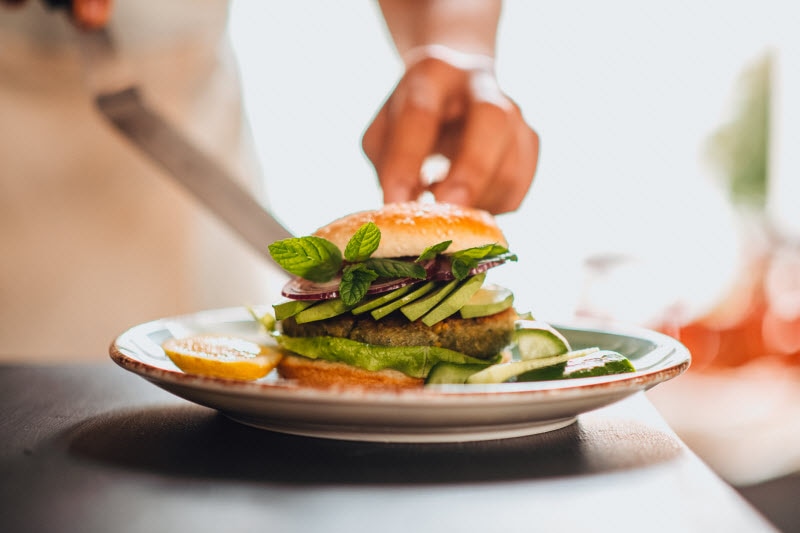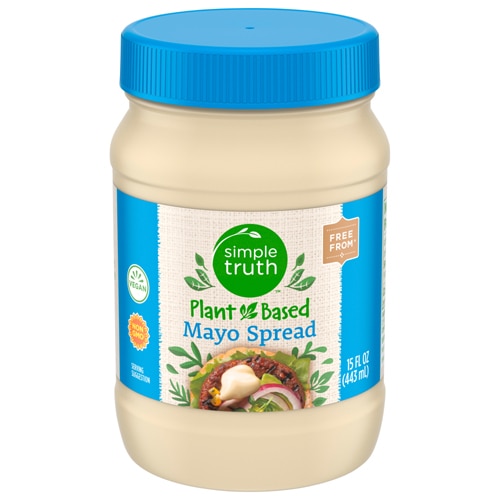[vc_row][vc_column][vc_column_text]If you are planning to
give up meat for the holidays – or to start an animal-free diet in the coming new year – you will be joining a big club.
Roughly 16.5 million American adults do not eat meat, according to a
survey by the Alliance for Science. That is about 10% of all U.S. adults.
But once you decide to give up meat, a thorny question arises: What type of diet will you follow eat instead?

Some people struggle with whether to follow a vegan diet or a plant-based diet. The two diets might sound identical, and it is true that both diets focus heavily on consuming plant-based foods.
But there is a crucial difference between the two approaches to eating.
With
a vegan diet, no animal products are on the menu. In fact, many who embrace veganism avoid animal products of any type, including clothing.
But while a
plant-based diet mostly focuses on plants, it may make some allowances for animal products, including fish, eggs, dairy or honey.
So, which diet makes more sense for you?
The pros and cons of a vegan diet
One of the biggest advantages of a vegan diet is not nutritional, but ethical, says
Erin Palinski-Wade, a registered dietitian and author of "Belly Fat Diet For Dummies."
"Those following a vegan meal plan may feel it is playing a role in the protection of animal rights, as well reducing the impact on the environment," she says.
A vegan diet also offers some health benefits, including a reduction in saturated fat intake, Palinski-Wade says.
However, switching to a vegan diet includes some potential downsides. The diet itself lacks some
key nutrients that are not found in plants, including:
- Vitamin B12
- Creatine
- Carnosine
- Vitamin D3
- Docosahexaenoic acid (DHA)
- Heme iron
- Taurine
In addition, it can be difficult to finds vegan options when eating out or away from home, Palinski-Wade says.
Before
switching to a vegan diet, Palinski-Wade recommends doing a lot of research and consulting with a health care professional to ensure that your new diet provides the nutrition you require.
"A vegan diet can meet your nutritional needs, but much planning is involved to be sure you do not fall short on key nutrients," Palinski-Wade says.
The pros and cons of a plant-based diet
A plant-based diet also offers some key health benefits.
Adding more plants to your diet can help increase fiber and antioxidant intake, both of which many typical diets lack, Palinski-Wade says.
"By increasing your dietary intake of fiber, you may reduce cholesterol, improve body weight and improve blood-sugar management," she says.
Dietary fiber also plays an important role in improving gut health, which in turn helps with disease prevention and an enhanced immune system, she adds.
However, Palinski-Wade notes that not all plant-based foods are equally good for you.
"Consuming a wide variety of highly processed refined snacks with added sugars would still be ‘plant-based,’ but offer little nutrition value," she says.
Instead, it's important to focus on plants that truly can boost your health, including more vegetables,
beans,
nuts,
seeds and legumes.
Which diet is best for you?
Both vegan and plant-based diets can be a good alternative to a more traditional diet focused on eating meat, Palinski-Wade says.
"Both meal plans can offer health benefits such as a reduced risk of heart disease," she says. "But both still need to be balanced to ensure all daily needs are being met."
If forced to choose between the two, Palinski-Wade leans toward the
plant-based diet.
"Vegan meal plans can be harder to follow consistently over time and have a higher risk of nutrient deficiencies," she says.
If you plan to follow either of these two types of diets, Palinski-Wade recommends that you focus on small changes over time that you can consistently maintain.
"Trying to overhaul your entire meal plan at once can be overwhelming," she says, adding that such pressure can cause you to "burn out and go back to old habits."
Palinski-Wade also emphasizes the need to
work with a registered dietitian if you plan to follow a vegan diet, so that you get key nutrients such as protein and vitamin B12.
"Adding more plants to your diet -- however you choose to do it -- offers benefits," she says. "So, focus on increasing your plant intake gradually to make changes you can stick with."[/vc_column_text][/vc_column][/vc_row][vc_row][vc_column][vc_text_separator title="Featured Products" border_width="2"][vc_row_inner equal_height="yes" content_placement="middle" gap="35"][vc_column_inner width="1/3"][vc_single_image image="163371" img_size="full" alignment="center" onclick="custom_link" img_link_target="_blank" css=".vc_custom_1668012592556{padding-right: 7% !important;padding-left: 7% !important;}" link="https://www.vitacost.com/parma-vegan-parmesan-original"][/vc_column_inner][vc_column_inner width="1/3"][vc_single_image image="163370" img_size="full" alignment="center" onclick="custom_link" img_link_target="_blank" css=".vc_custom_1668012608050{padding-right: 7% !important;padding-left: 7% !important;}" link="https://www.vitacost.com/simple-truth-plant-based-mayo-spread"][/vc_column_inner][vc_column_inner width="1/3"][vc_single_image image="163369" img_size="full" alignment="center" onclick="custom_link" img_link_target="_blank" css=".vc_custom_1668012626741{padding-right: 7% !important;padding-left: 7% !important;}" link="https://www.vitacost.com/banza-plant-based-chickpea-mac-cheese"][/vc_column_inner][/vc_row_inner][/vc_column][/vc_row]
 Some people struggle with whether to follow a vegan diet or a plant-based diet. The two diets might sound identical, and it is true that both diets focus heavily on consuming plant-based foods.
But there is a crucial difference between the two approaches to eating.
With a vegan diet, no animal products are on the menu. In fact, many who embrace veganism avoid animal products of any type, including clothing.
But while a plant-based diet mostly focuses on plants, it may make some allowances for animal products, including fish, eggs, dairy or honey.
So, which diet makes more sense for you?
Some people struggle with whether to follow a vegan diet or a plant-based diet. The two diets might sound identical, and it is true that both diets focus heavily on consuming plant-based foods.
But there is a crucial difference between the two approaches to eating.
With a vegan diet, no animal products are on the menu. In fact, many who embrace veganism avoid animal products of any type, including clothing.
But while a plant-based diet mostly focuses on plants, it may make some allowances for animal products, including fish, eggs, dairy or honey.
So, which diet makes more sense for you?



